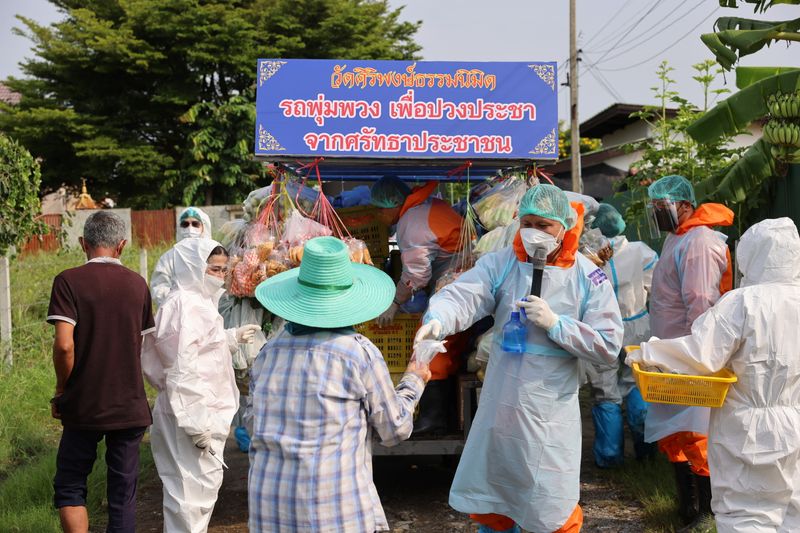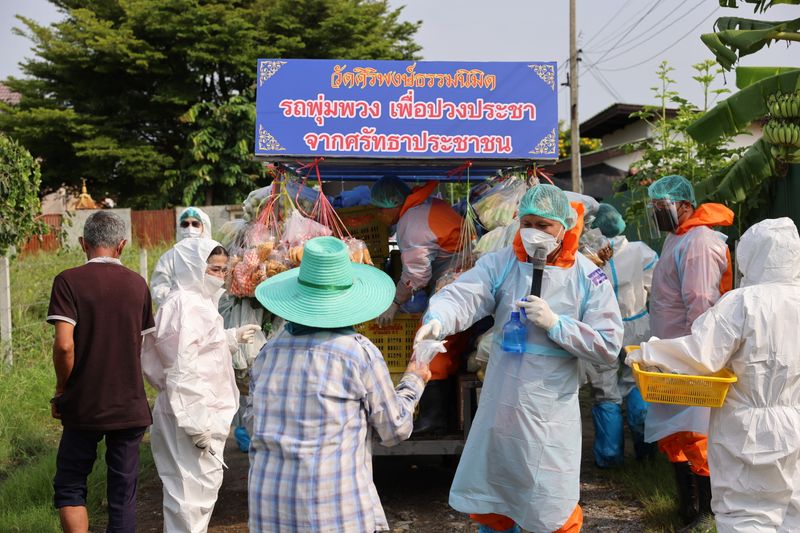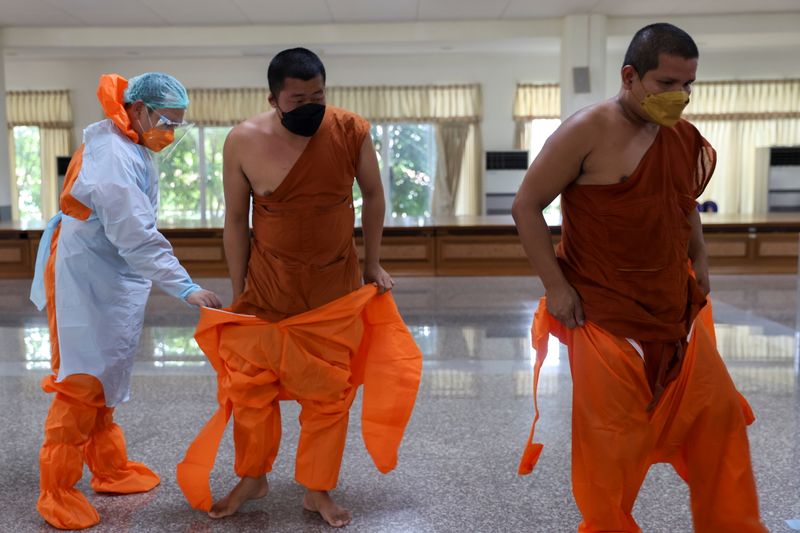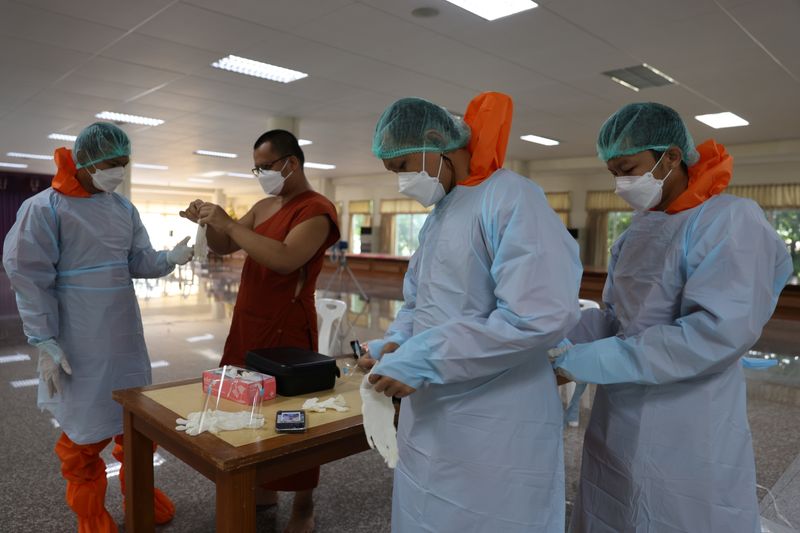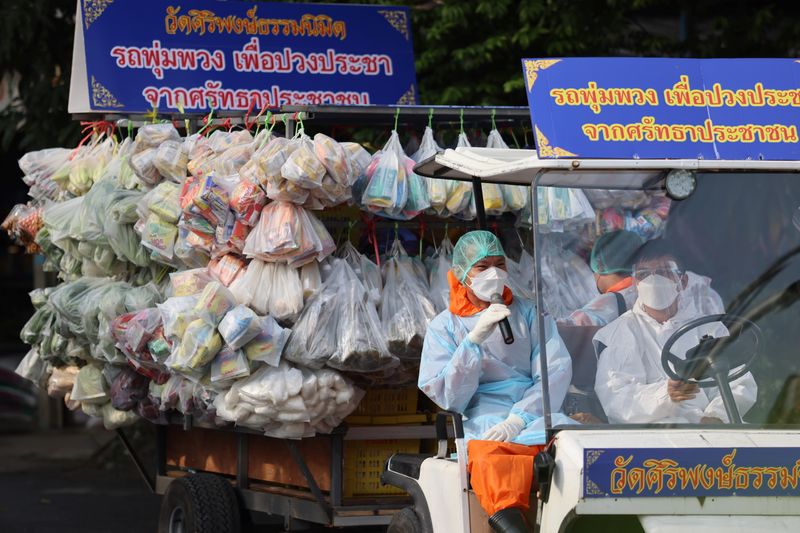BANGKOK (Reuters) – A group of Thai monks and volunteers wearing protective clothing carefully navigate the bumpy roads of a Bangkok suburb in a golf cart, towing a trailer loaded with fresh vegetables.
“Groceries are here! Groceries are here!” a monk announces through a loudspeaker.
Their mission is to donate food and necessities to vulnerable people hard hit by the pandemic.
Monk Pornchai Kabmalee, 28, came up with the idea a few months ago when he saw hardship in a community near his temple, Wat Siriphong Thamma Nimit.
“I can say our truck basically has everything that a supermarket has,” he said.
“I feel scared (of the virus) just like other human beings, but to me, I’m more scared of not being able to help others.”
The truck goes out on Sundays, making multiple trips and reaching hundreds, potentially thousands of people each month, Pornchai said.
As the truck arrives, residents start to gather, each allowed to pick five sacks of produce, such as tomatoes, pumpkins, garlic and chillies, along with other goods like soap, rice and eggs.
“This food will make me feel less hungry for a couple of days,” said Montri Boontheab, who drove a bus for Chinese visitors before the coronavirus put the brakes on tourism.
“I have been unemployed for a year and I don’t see my future yet.”
Thailand has recorded more than 1.5 million COVID-19 infections and 15,600 deaths, 99% of those since April, putting a big strain on its economy.
The produce costs at least 50,000 baht ($1,498) per week, which the monks’ say initially came from their own pockets. But as word of mouth spreads, more donations are coming.
Pornchai is not sure how much longer the temple will provide the service, but is looking forward to the day when it will no longer be necessary.
“When people are able to smile again, that’s when I’ll know that the mission has been accomplished,” he said.
(Editing by Martin Petty and Philippa Fletcher)

